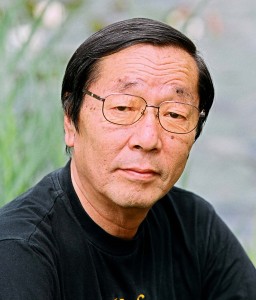A Quote by Michel de Montaigne
There is, nevertheless, a certain respect and a general duty of humanity that ties us, not only to beasts that have life and sense, but even to trees and plants.
Related Quotes
There is a certain consideration, and a general duty of humanity, that binds us not only to the animals, which have life and feeling, but even to the trees and plants. We owe justice to people, and kindness and benevolence to all other creatures who may be susceptible of it. There is some intercourse between them and us, and some mutual obligation.
The purpose of life for man is growth, just as the purpose of life for trees and plants is growth. Trees and plants grow automatically and along fixed lines; man can grow as he will. Trees and plants can only develop certain possibilities and characteristics; man can develop any power which is or has been shown by any person anywhere. Nothing that is possible in spirit is impossible in flesh and blood. Nothing that man can think is impossible. Nothing that man can imagine is impossible of realization.
Yes, all of life is sacred, including plants; and yes, there is research that demonstrates that plants have feelings - they feel it when their leaves or stems are ripped - and there is scientific evidence that while plants do not have brains and nervous systems like animals, they nevertheless actively work to ensure their survival - they want to live, thrive, reproduce, evolve.
If you look into their [chimpanzees] eyes, you know you're looking into a thinking mind. They teach us that we are not the only beings with personalities, minds capable of rational thought, altruism and a sense of humor. That leads to new respect for other animals, respect for the environment and respect for all life.
We are humanity, Kant says. Humanity needs us because we are it. Kant believes in duty and considers remaining alive a primary human duty. For him one is not permitted to “renounce his personality,” and while he states living as a duty, it also conveys a kind of freedom: we are not burdened with the obligation of judging whether our personality is worth maintaining, whether our life is worth living. Because living it is a duty, we are performing a good moral act just by persevering.
There's so much humanity in a love of trees, so much nostalgia for our first sense of wonder, so much power in just feeling our own insignificance when we are surrounded by nature...yes, that's it: just thinking about trees and their indifferent majesty and our love for them teaches us how ridiculous we are - vile parasites squirming on the surface of the earth - and at the same time how deserving of life we can be, when we can honor this beauty that owes us nothing.
Perhaps we can only truly serve those we are willing to touch, not only with our hands but with our hearts and even our souls. Professionalism has embedded in service a sense of difference, a certain distance. But on the deepest level, service is an experience of belonging, an experience of connection to others and to the word around us. It is this connection that gives us the power to bless the life in others. Without it, the life in them would not respond to us.
Either we have an immortal soul, or we have not. If we have not, we are beasts,--the first and the wisest of beasts, it may be, but still true beasts. We shall only differ in degree and not in kind,--just as the elephant differs from the slug. But by the concession of the materialists of all the schools, or almost all, we are not of the same kind as beasts, and this also we say from our own consciousness. Therefore, methinks, it must be the possession of the soul within us that makes the difference.
Take care with manufactured chemicals, certainly. Your safety and long term health are more important than anything. Yet don't forget that if you grow even a dozen different plants, you are surrounded by chemistry. Inside their cells even the most ordinary plants creates potent fungicides, insecticides, irritants, balms, hallucinogens, sedatives, nerve toxins, cell repair stimulants, lures, repellents... you name it. Treat all plants with respect!
The interpretations of science do not give us this intimate sense of objects as the interpretations of poetry give it; they appeal to a limited faculty, and not to the whole man. It is not Linnaeus or Cavendish or Cuvier who gives us the true sense of animals, or water, or plants, who seizes their secret for us, who makes us participate in their life; it is Shakspeare [sic] … Wordsworth … Keats … Chateaubriand … Senancour.








































